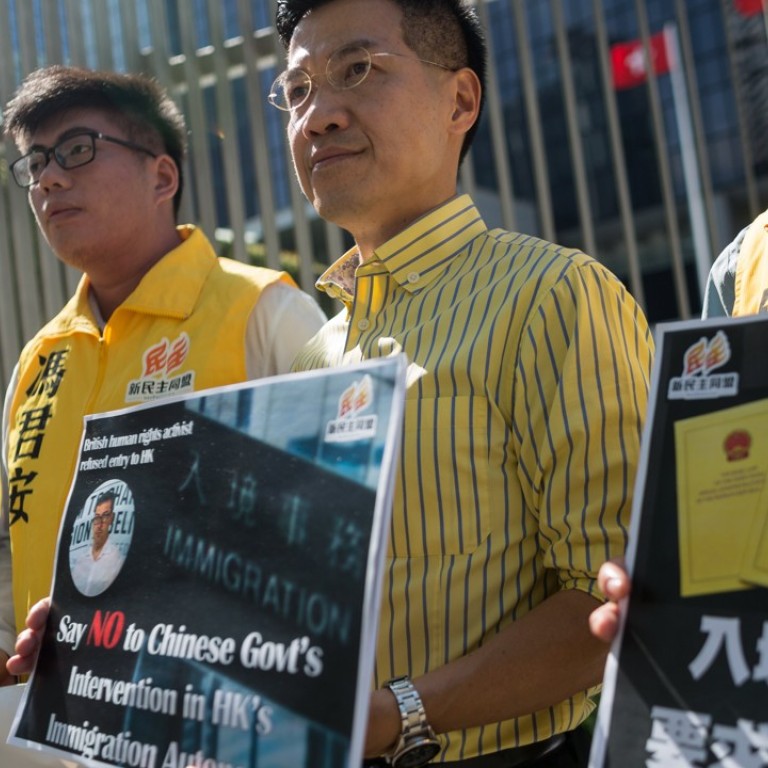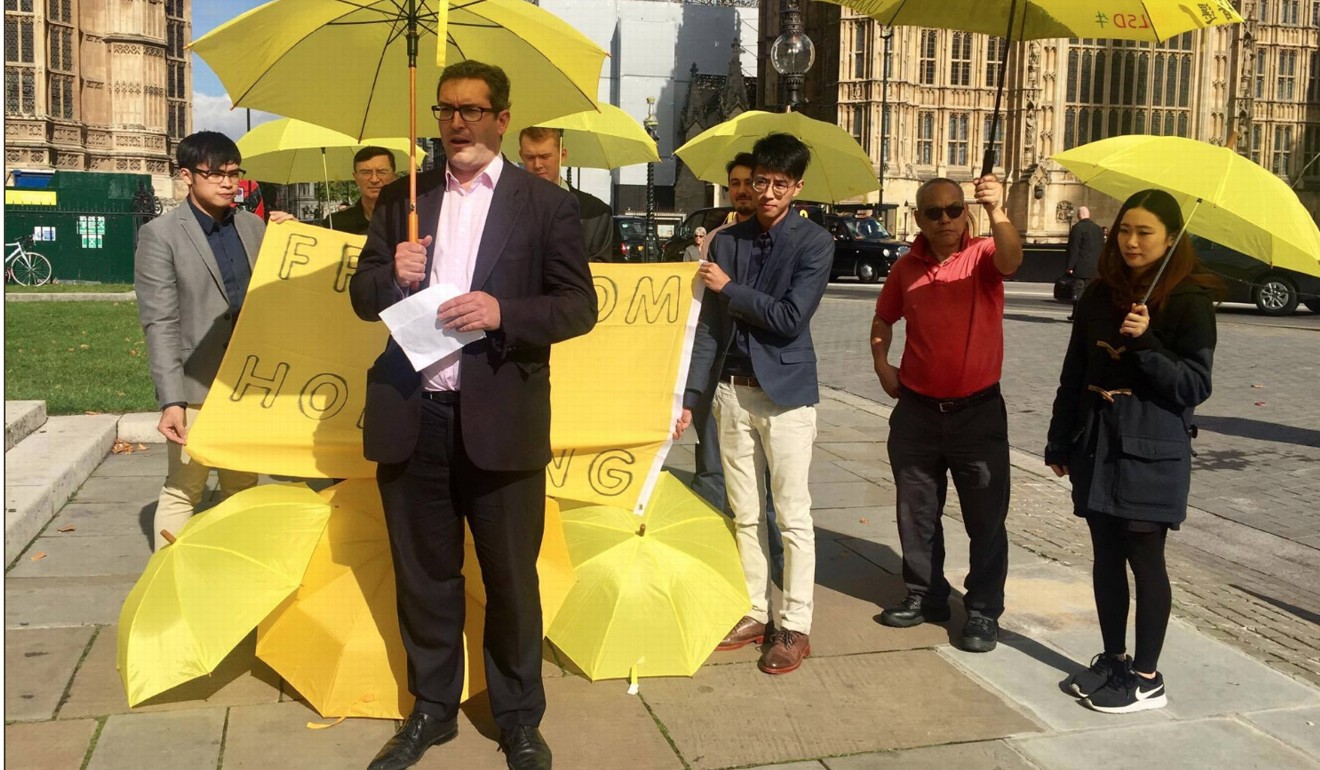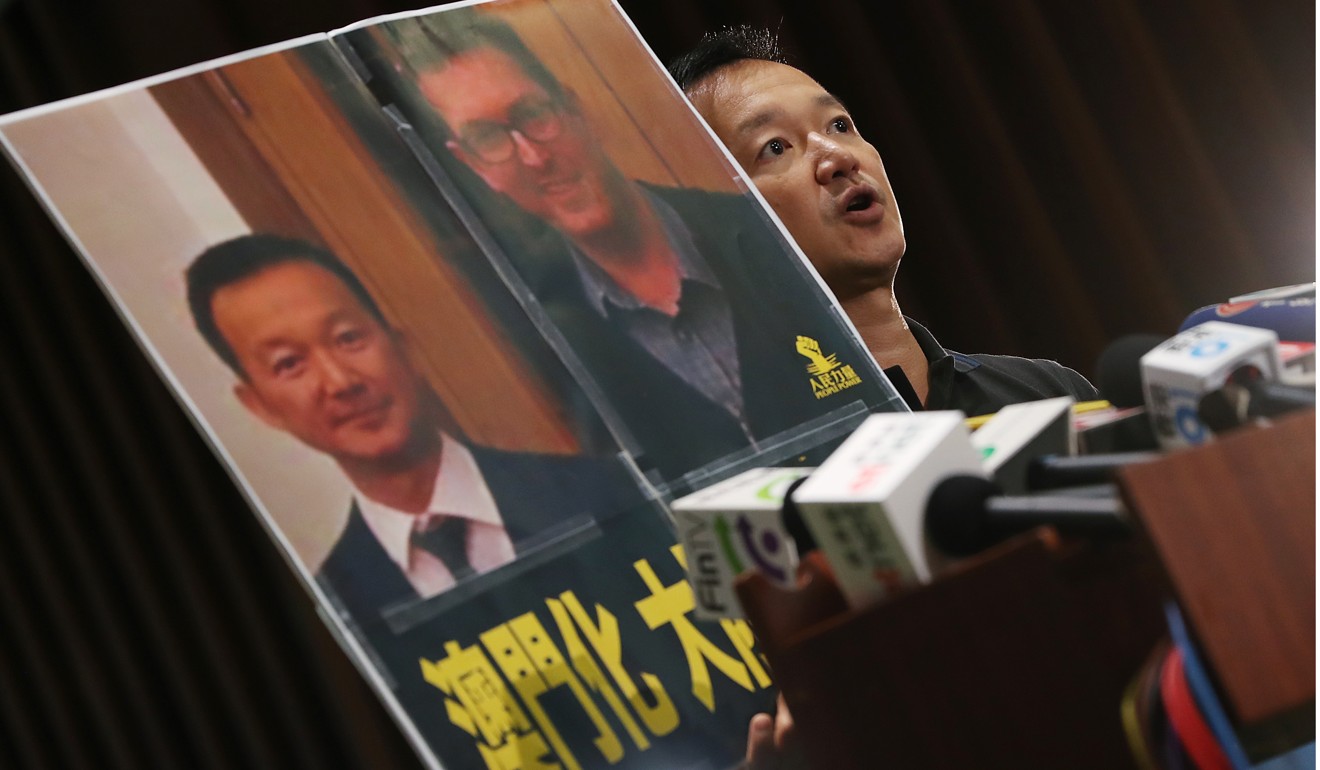
Hong Kong’s barring of British activist was a mistake, but it’s not a threat to ‘one country, two systems’
Nicholas Gordon says we should be watchful of real threats to our system, rather than focus on Benedict Rogers’ case, where even if Beijing was involved in denying his entry, it has the right to do so under the Basic Law
One could argue that it might have been better to let Rogers enter, but a misguided decision is not the same as a threat to “one country, two systems”. For those who rightly want to protect Hong Kong’s autonomy, this case threatens to be a “false positive” that can distract us from real threats to the constitutional structure.
In the first place, critics are mischaracterising what they are upset about. By arguing that the denial of entry is an example of China interfering in Hong Kong affairs, critics imply that the origin of the decision is what matters, not the decision itself. Thus, if it turns out that Hong Kong blocked him entirely on its own authority, everything would be fine. But this would surely also have attracted criticism.
Beijing runs Hong Kong’s foreign affairs, says Carrie Lam, after British politician barred from city
Rogers is the deputy chair of the Conservative Party’s human rights commission. He is a political actor and his visit would have involved politics, whether or not he wanted it to. The question of allowing foreign politicians into Hong Kong (whether or not you agree with them) does bleed into “foreign affairs”. In this way, Rogers is different from a writer, a journalist, an artist, an academic, or even an unaffiliated activist seeking to visit Hong Kong.

It is not uncommon for countries to take a dim view of foreign politicians visiting for political purposes. Earlier this year, both Germany and the Netherlands barred Turkish politicians from campaigning among their Turkish diaspora. Indeed, countries don’t restrict the right to ban entry only to politicians. Britain, Australia and Canada have, at times, barred rappers from entering the country on the basis of their lyrics.
Among observers who disapprove of any decision made in Hong Kong, there is a tendency to blame Chinese interference for it. Yet, one must admit the possibility that the Hong Kong government may have arrived at the decision entirely on its own.
Something can be a misguided decision without it also contradicting “one country, two systems”. The Hong Kong government is perfectly capable of making mistakes on its own, without Beijing’s involvement. And Beijing can express its limited authority in Hong Kong heavy-handedly and bluntly, without it also being a violation of the Basic Law.
Hong Kong is not Singapore, don’t believe the ‘authoritarian’ hyperbole

Hong Kong admonishes US panel for calling future of ‘one country, two systems’ increasingly uncertain
We should pay close attention to instances where “one country, two systems” looks like it might be under threat. But the Rogers case seems like a false positive.
We can criticise the barring of Rogers as an error in judgment, a political miscalculation ... But it is not a violation of ‘one country, two systems’
What, then, might be the “canaries in the coal mine”? Sticking with immigration, a few possibilities come to mind.
Ultimately, Hong Kong can deny anyone it wants. But it would be a cause for worry if Hong Kong started to deny entry to foreign academics, journalists, artists, or politically unaffiliated critics, whether on its own authority or Chinese instruction. It would also be concerning if Hong Kong were to change its immigration policy for entire countries based on that country’s bilateral relationship with China.
We should also be worried if Beijing were to unequivocally and unambiguously overrule Hong Kong’s immigration authority. If Rogers were allowed into Hong Kong, and then unceremoniously booted out by mainland officials, that could be seen as a case of undue Chinese interference.
None of these, fortunately, has happened yet. We can criticise the barring of Rogers as an error in judgment, a political miscalculation or a violation of ideals. But it is not a violation of “one country, two systems”.
Nicholas Gordon is a researcher working for the Global Institute for Tomorrow, a Hong Kong-based think tank. The views expressed are his own

